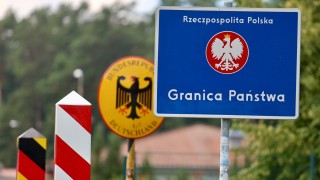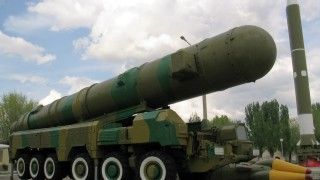- ANALIZA
Charting the Collective Commitment to Enhance NATO’s Focus on Resilience
Crises of the 21st century will be increasingly unpredictable and non-linear. The COVID-19 pandemic and the start of the largest war in Europe since the Second World War with all the associated global economic shocks of these events indicate this is already true. The rise of great power competition, combined with the pervasive threats of international terrorism and climate change are increasing the complexity of the security environment. They also highlight the importance of NATO’s ongoing efforts to support Allies in strengthening their resilience and that of the whole Alliance, under the mandate set by Article III of the Washington Treaty1 - as Mr Ian Birdwell, NATO Allied Command Transformation, writes in an article.

The 2021 Strengthened Resilience Commitment2 agreed at the Brussels Summit last year, and the related political decisions of the NATO 2030 Agenda, set the tone and the pace for a whole-of-government and whole-of-society approach to resilience. Additionally, the NATO Warfighting Capstone Concept, endorsed in 2021 as an ambitious NATO "North Star" for warfare development, sets the stage for an in depth analysis of the military implications of resilience for NATO's deterrence and defence.
Resilience requires successful collaboration between civilian and military stakeholders and must consider these two mutually reinforcing layers, as well as their interdependencies. Having a holistic understanding of these relationships and where shortfalls exist will help the Alliance determine the risks, prioritise mitigation, and strengthen enablement, readiness and responsiveness.
NATO's Military Instrument of Power contributes to the implementation of the Strengthened Resilience Commitment and Seven Baseline Requirements,3 namely in pursue of: empowering the unity of the Alliance, strengthening resilience as an essential basis for the Alliance's credible deterrence and defence; and enabling swift recovery from crisis.
As NATO Secretary General Jens Stoltenberg has stated the strength of the Alliance lies in its unity.4 Renewed focus on resilience and preparedness, both as a national responsibility and as a collective commitment, highlights the important role that NATO has in supporting Allies. Therefore, preserving political commitment to resilience within NATO through implementation of Strengthened Resilience Commitment and development of associated military resilience, directly contributes to the unity of Alliance.
The foundation of credible deterrence and defence lies in the ability of the Alliance to out-pace, out-last and out-excel potential adversaries. The pursuit of the 2021 Strengthened Resilience Commitment should therefore also address the military aspects of NATO's resilience agenda in support of this ambition. Work on increasing resilience of critical capabilities, infrastructure, and supply lines, will greatly benefit Allied military forces in their execution of all three core tasks.

Finally, the security environment is moving away from the peace-crisis-conflict continuum, towards an age of continuous competition. Enhancing collective resilience through the consideration of both military and civilian layers simultaneously creates a fundamental basis to ensure NATO can continue to operate in and through any crisis, wherever and however it may occur. In short, considering resilience more comprehensively pushes NATO to understand where potential vulnerabilities could lie and factor those into its planning calculus. Such complex and integrated planning creates the conditions for greater preparedness, better adaptation and a swifter recovery following any strategic shock.

In the midst of the myriad of challenges and crises facing the Alliance, NATO's commitment to enhancing resilience has grown with these challenges. Guided by the 2021 Strengthened Resilience Commitment and supported by the Seven Baseline Requirements and the NATO Warfighting Capstone Concept, NATO's efforts to enhance the collective resilience of the Alliance will help prepare it to meet any future challenges.
Mr Ian Birdwell, NATO Allied Command Transformation
Footnotes:
3 https://www.nato.int/docu/review/articles/2019/02/27/resilience-the-first-line-of-defence/index.html
4 https://www.nato.int/cps/th/natohq/opinions\_191145.htm?selectedLocale=en















